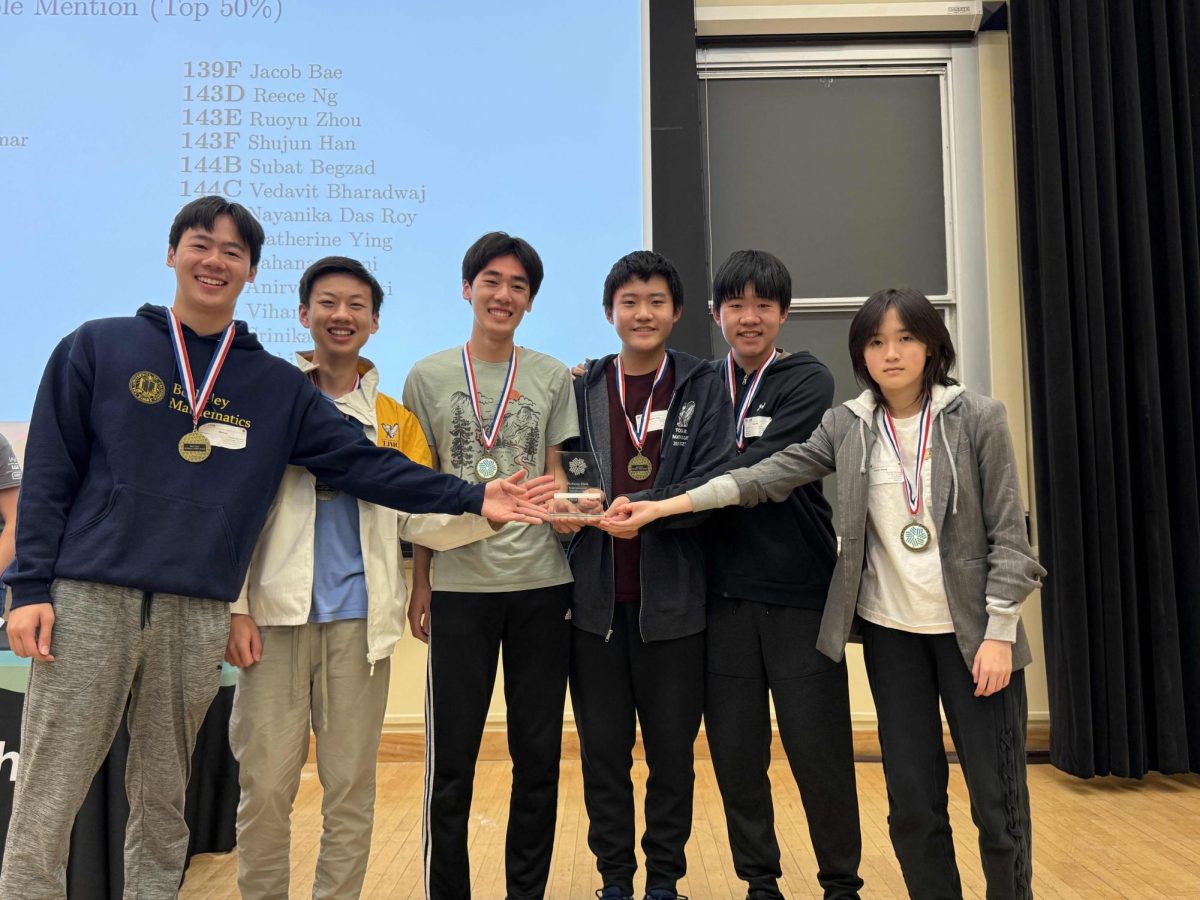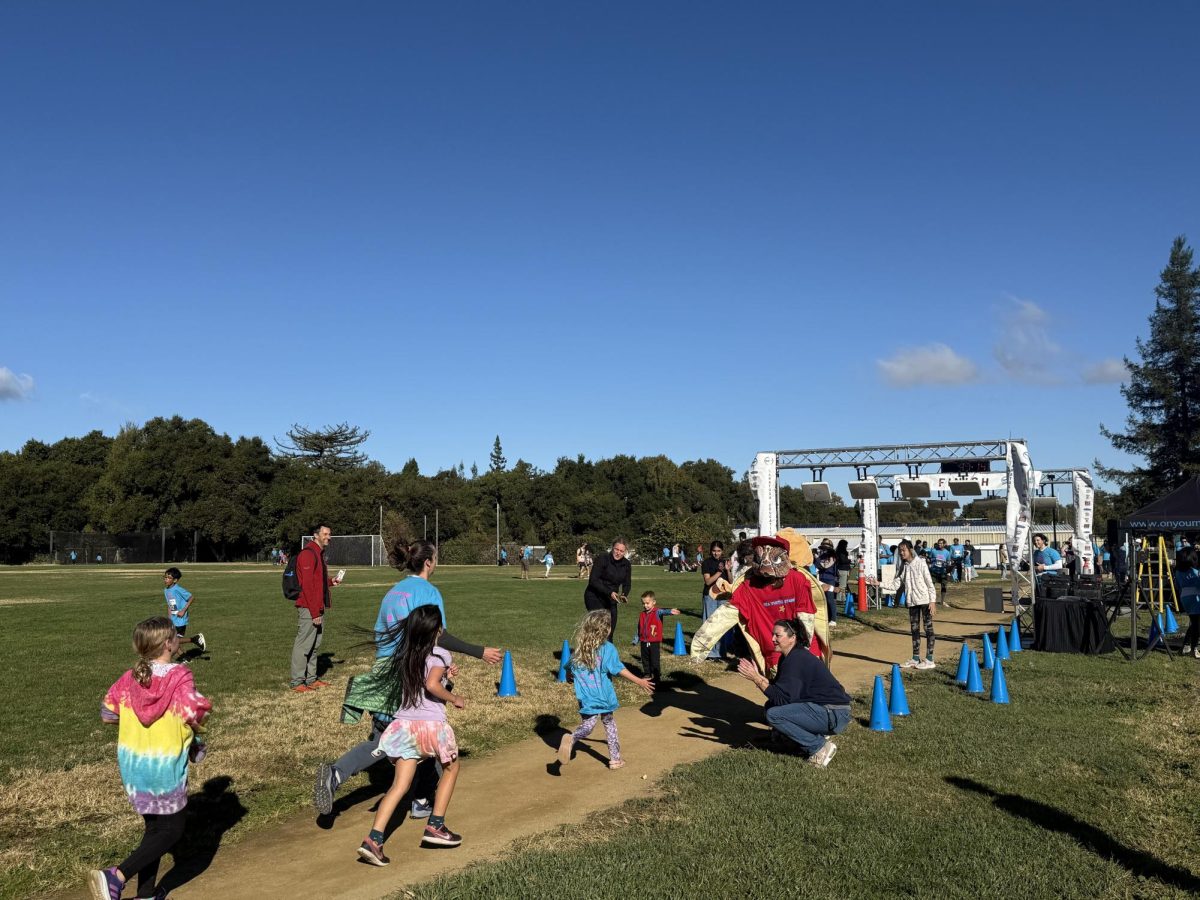One of the year's first major math competitions at Santa Clara university last month gave five SHS mathletes the chance to qualify for future state and national contests. In the 3-hour, 10-question exam, students tried to solve challenging problems as quickly and efficiently as possible.
This competition marks the first off-campus math contest of the school year. Although it is not as prestigious as most other competitions, it certainly kickstarts the competitive math season.
“The test wasn’t too hard, but some of the problems took quite a bit of time,” sophomore Justin Sun said.
Unlike many standardized tests, this exam was intended to test students’ problem solving skills rather than the content of a specific course. For example, some of the problems involved number theory, a branch of mathematics not taught in school.
Since off-campus contests are uncommon at the high school level for the math club, gaining experience whenever possible is important. These local tournaments can also serve as preparation for more prestigious nationwide contests in the future, like the Berkeley math tournament.
According to freshman Jeffrey Xu, one of the motives to attend this tournament was to transition from middle school to high school competitions. He also noted that high school contests feel more organized, but that may just be due to the fact that older students tend to act more maturely.
In preparation the SCU competition, the members practiced problems sets and collaborated to solve the difficult questions, even though the actual test was taken individually.
Although many students declined to attend due to the fact that it was held on a weekend, the ones who did had high goals. This is because the SHS math club traditionally does well at math competitions due to the well-organized infrastructure of the math club.
“I expected to do well in the competition, since I solved all the practice problems,” Sun said.
Although he didn’t know what to expect at his first high school competition, Xu felt similarly because of the preparation he and the team put in.
At these small local contests, receiving the prize — usually a certificate or trophy — is not all that important, but the respect and recognition that comes with it is something sought after by many, according to Sun. Regular competitors will often be able to name the top mathletes in the area.
In addition, Sun felt that the testing environment could certainly be improved. The test took place in a lecture hall, which meant that students barely had any space to work.
Sun also said that having two rooms instead of one would allow each student to use two desks, “which worked fine at other competitions.”
However, test-takers aren’t aware of the challenges faced in the behind-the-scenes of organizing the event. This year’s contest date was held a week earlier than usual, giving test-writers and proctors less time to prepare.
According to the club’s president junior Tiffany Huang, the club will compete in more tournaments such as the Berkeley math tournament in February and A-star math tournament in March.
These future tournaments will help the Math Club bond and result in even better results.
“I'm looking forward to having an opportunity to bond with our own math club members and to interact and meet up with other students interested in math who are from different schools,” Huang said.




























